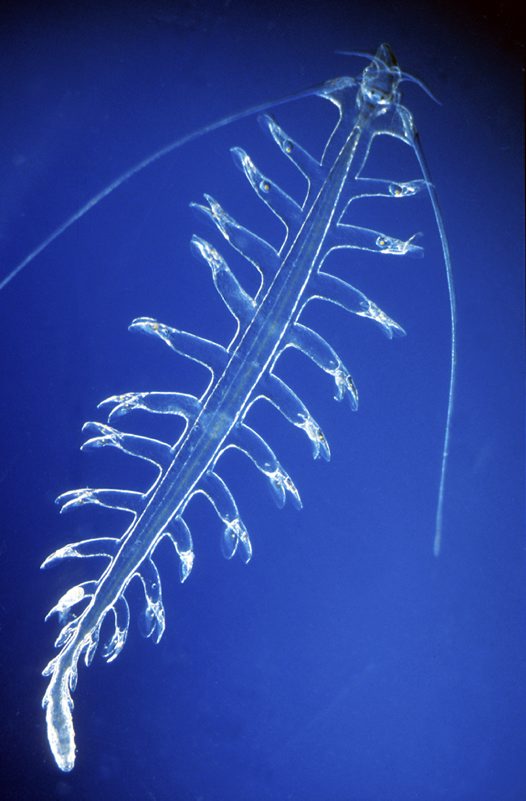
noun
- the aggregate of passively floating, drifting, or somewhat motile organisms occurring in a body of water, primarily comprising microscopic algae and protozoa.
noun
- the organisms inhabiting the surface layer of a sea or lake, consisting of small drifting plants and animals, such as diatomsCompare nekton
n.1891, from German Plankton (1887), coined by German physiologist Viktor Hensen (1835-1924) from Greek plankton, neuter of planktos “wandering, drifting,” verbal adjective from plazesthai “to wander, drift,” from plazein “to drive astray,” from PIE root *plak- (2) “to strike, hit” (see plague (n.)). Related: Planktonic.
- Small organisms that float or drift in great numbers in bodies of salt or fresh water. Plankton is a primary food source for many animals, and consists of bacteria, protozoans, certain algae, cnidarians, tiny crustaceans such as copepods, and many other organisms. Compare benthos nekton.
 Liberal Dictionary English Dictionary
Liberal Dictionary English Dictionary